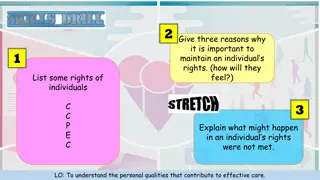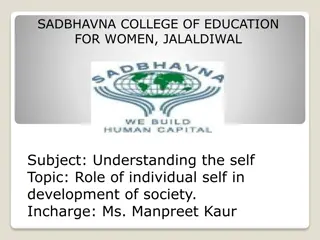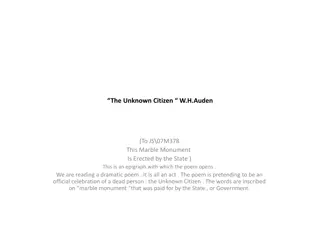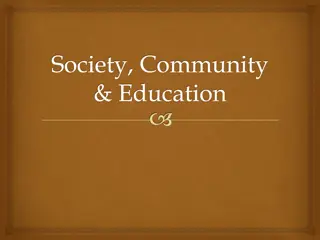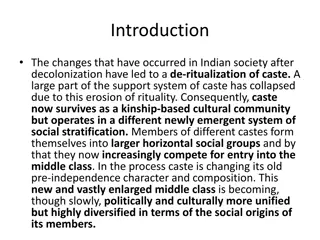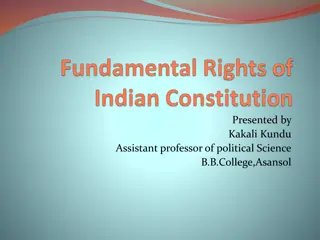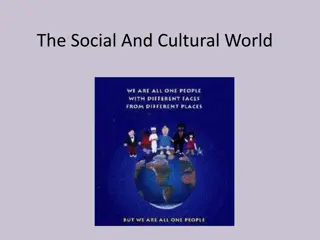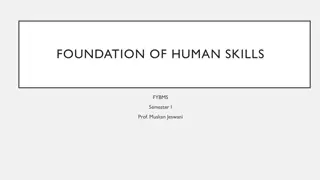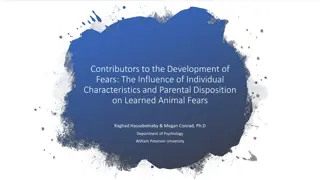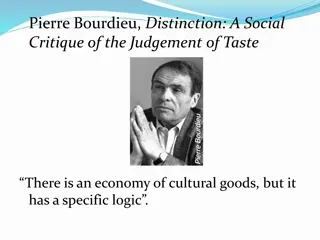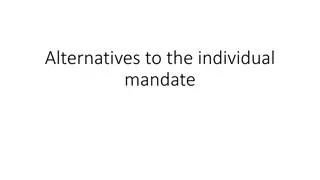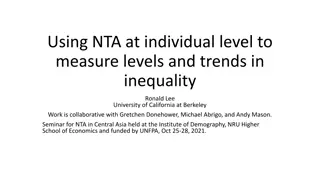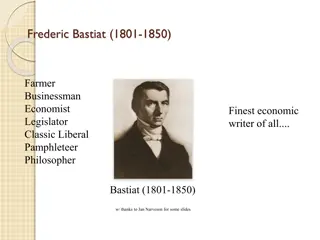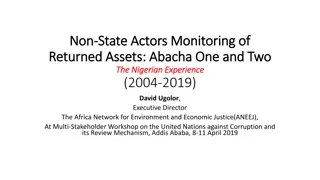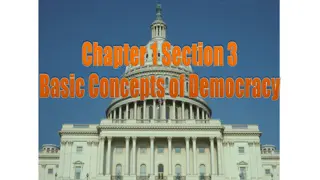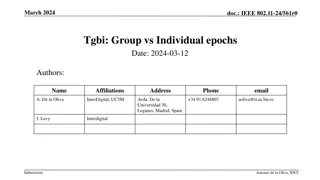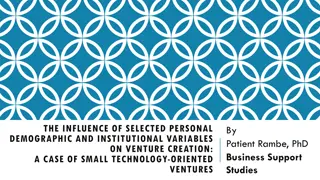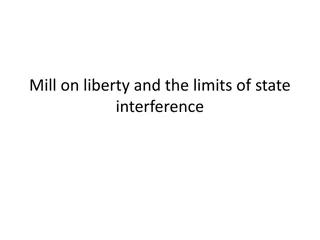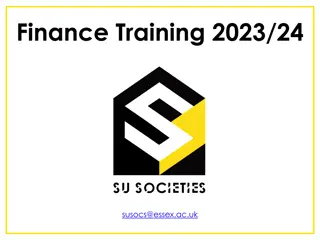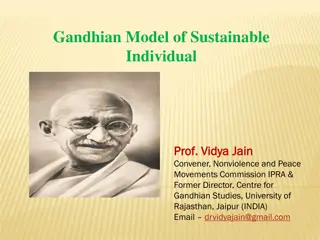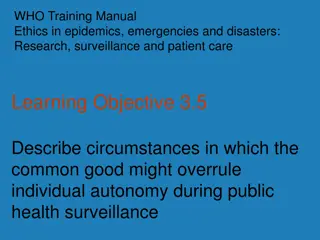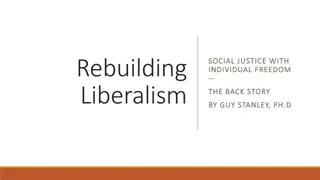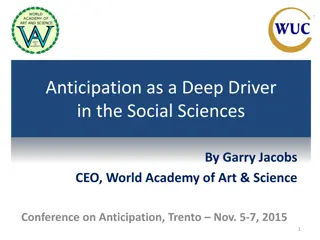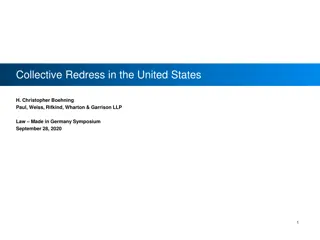Society 5.0 - Co-creating the Future
The concept of Society 5.0 for SDGs in this informative presentation by NAKAJIMA Koh, Deputy Director at Keidanren (Japan Business Federation). Discover how technological advancements and digital transformation are shaping the future of society, and the role of social partners in creating a data-dri
17 views • 37 slides
Pi Mu Epsilon Honor Society Induction Ceremony and History
The 49th Annual Induction Ceremony of the North Carolina Zeta chapter featured advisor Dr. Russell Herman. Established to promote mathematical scholarship, Pi Mu Epsilon Honor Society has fourteen NC chapters including Duke University and UNC Chapel Hill. The society's pledge emphasizes promoting tr
2 views • 11 slides
Latin America Society of American Nuclear Society - Overview and Governance
The Latin American Section of the American Nuclear Society (LAS/ANS) was established in 1975 to represent nuclear professionals across Latin America. It focuses on promoting nuclear science and technology in various fields, facilitating research and education, organizing technical meetings, and fost
2 views • 43 slides
Approaches to the study of Human Rights
The Marxist perspective on human rights emphasizes social rights over individual rights, viewing the full realization of self within society. Marx connects bourgeois society with human rights, highlighting how exploitation under capitalism alienates individuals. In contrast, the Third World perspect
5 views • 19 slides
Federal Learning Account Program: Enhancing Individual Training Rights
Explore the Federal Learning Account Program focusing on individual training rights, including the right to an individual training plan, sectors with collective bargaining agreements on education, and employer responsibilities in providing training opportunities. Discover practical tips for particip
2 views • 34 slides
Understanding Civil Society: Concepts, Challenges, and Implications
Explore the dynamics of civil society, from its dense network of groups to its role in democracy. Delve into the typology of Civil Society Organizations, the connection between civil society and democracy, and the unique landscape of civil society in Norway. Engage in thought-provoking discussions o
0 views • 9 slides
Importance of Maintaining Individual Rights in Effective Care
Recognizing and upholding an individual's rights is crucial for providing effective care. It ensures the individual feels respected, valued, and supported, contributing to a trusting relationship. Failure to meet these rights can lead to negative consequences impacting the individual's well-being an
0 views • 32 slides
Understanding Individual Employment Plan (IEP) and Individual Service Strategy (ISS) in WIOA Training Academy
Individual Employment Plan (IEP) and Individual Service Strategy (ISS) are essential components of the WIOA Training Academy, tailored to meet the career needs of participants under various WIOA programs. IEPs focus on personalized career services for adults and dislocated workers, while ISSs are sp
1 views • 23 slides
Role of Self in Society Development: Understanding the Individual Impact
Society is shaped by individuals, with self-development playing a crucial role. Socialization in family and school environments influences behavior, intelligence, and citizenship. Self-awareness enhances etiquette, discipline, spirituality, and morals in society. Understanding oneself is key to comp
0 views • 9 slides
Analysis of "The Unknown Citizen" by W. H. Auden
The poem "The Unknown Citizen" by W. H. Auden is a satirical commentary on modern society's dehumanization and loss of individual identity. Through the persona of an unnamed citizen reduced to a mere number, the poem critiques bureaucratic control, conformity, and the erasure of personal agency. The
0 views • 6 slides
Overview of Performance Management Systems and Competency Mapping
Performance Management Systems (PMS) play a crucial role in ensuring organizational objectives are met through individual contributions. This entails continuous improvement at all levels - individual, team, and organizational. Managing performance is vital for survival and growth in a competitive en
3 views • 45 slides
Understanding the Elements of Society: Society, Community & Education
Society is a complex web of social relationships characterized by likeness, inter-dependence, and cooperation among individuals. It is not just a group of people but a system of organized associations and communication within a community. With elements like similarity, diversity, inter-dependence, a
0 views • 23 slides
Evolution of Caste in Post-Colonial Indian Society
Changes in Indian society post decolonization have led to the de-ritualization of caste, resulting in a shift towards a kinship-based cultural community operating in a new system of social stratification. Secularization of caste has detached it from ritual hierarchy and aligned it with competitive d
5 views • 10 slides
Influences of Individual Characteristics on Health: A Critical Exploration
This session delves into the various influences on health at an individual level, examining factors such as developmental, social, and psychological elements. It explores the impact of foetal development, teratology, and foetal programming on long-term health outcomes, emphasizing the intricate rela
0 views • 20 slides
Understanding Fundamental Rights in the Indian Constitution
Fundamental rights are crucial for developing an individual's personality and dignity in society. The Indian Constitution grants six fundamental rights, including equality, freedom, and protection against exploitation. Despite certain limitations, these rights are essential for upholding individual
0 views • 10 slides
Understanding Social and Cultural Concepts in Society
Explore the fundamental concepts of persons, society, culture, environment, time, power, and authority. Learn how these concepts interlink and shape interactions within a society over time. Gain insights into the importance of individual uniqueness in societal structures, the dynamics of social grou
1 views • 10 slides
Understanding Human Nature and Individual Differences in Foundation of Human Skills
Explore the foundational concepts of human behavior, individual differences, and organizational culture in the study of human skills. Delve into topics such as human nature, personality, attitudes, intelligence, and learning in Prof. Muskan Jeswani's course. Understand the significance of inter- and
0 views • 11 slides
Understanding the Development of Fears: Individual and Parental Influences
Exploring the impact of individual characteristics and parental dispositions on learned animal fears, this study delves into the prevalence of phobias, the development of fears and phobias, fears through the transmission of information, and the role of these factors in childhood fear acquisition. Th
0 views • 23 slides
Methods to Evaluate Benefit-Risk Trade-Off in Individual Patients
Evaluating benefit-risk trade-offs in individual patients is crucial for making informed treatment decisions, especially when safety concerns arise with new therapies. This involves developing statistical algorithms to identify cases where potential harm outweighs benefits, as illustrated in the TRA
0 views • 26 slides
Insights on Culture, Taste, and Society by Pierre Bourdieu
Pierre Bourdieu's work in "Distinction: A Social Critique of the Judgement of Taste" delves into the intricacies of cultural practices and societal classifications of taste. He explores how lifestyles become sign systems qualified by social distinctions, influenced by habitus and symbolic capital. B
0 views • 16 slides
Islam's Response to Contemporary Issues Seminar Series
Explore the comprehensive approach of Islam towards contemporary issues in a seminar series covering topics like inter-religious peace, social peace, economic peace, political peace, and individual peace. Learn how individual peace, family bonds, support, and disciplining ambitions play crucial role
0 views • 18 slides
Advanced Techniques in Relational Data Outlier Detection
This document delves into cutting-edge methods for outlier detection in relational data, focusing on profile-based and model-based approaches such as leveraging Bayesian networks, feature generation, and individual feature vector summarization. The examples provided showcase the application of these
1 views • 30 slides
Debating Alternatives to the Individual Mandate in Healthcare Reform
Recent bipartisan discussions have called for exploring alternatives to the individual mandate in healthcare, citing its unpopularity and criticisms of being coercive or ineffective. The industry supports the mandate but believes it should be better enforced. Studies suggest that eliminating the man
0 views • 16 slides
Enhancing Civil Society Engagement in the Global Financing Facility (GFF)
Explore key tools and strategies for enhancing civil society engagement in the GFF, including the Civil Society Engagement Strategy, guidance notes, CSO resources, and the value of civil society in RMNCAH+N. Learn how civil society can contribute to advocacy, monitoring, accountability, and more tow
0 views • 16 slides
California Society Membership and Dues Reconciliation Processes
Dive into the membership and dues reconciliation procedures of the California Society, highlighting key dates, life membership programs, and documentation requirements. Learn about old and new life member programs, important deadlines, and the significance of each step in the reconciliation process
0 views • 24 slides
Analyzing Inequality Trends Using NTA at Individual Level
NTA (National Transfer Accounts) methodology is utilized to measure levels and trends in inequality at the individual level by adjusting age profiles and estimating adjustment factors. By studying distributions of individual outcomes and exploring factors contributing to inequality, questions like t
0 views • 44 slides
Insights from Frederic Bastiat on Law, Liberty, and Plunder
Frederic Bastiat, an eminent economist and philosopher, delves into the topic of law, its purpose, and the misuse of power in society. He critiques how laws can be perverted to serve individual greed and false philanthropy, leading to legal plunder. Bastiat emphasizes the importance of protecting ri
0 views • 23 slides
Monitoring and Recovery of Abacha Loot in Nigeria: The Civil Society's Advocacy Efforts
Civil society in Nigeria, led by organizations like ANEEJ, has been actively involved in monitoring and advocating for the recovery and transparent disbursement of assets stolen by the Abacha regime. Through initiatives like MANTRA, they have ensured that returned funds are used for the benefit of t
0 views • 10 slides
Key Principles of American Democracy and Social Contract Theory
The basic notions of American democracy emphasize fundamental worth, equality, majority rule with minority rights, compromise, and individual freedom. These principles can be upheld through a social contract, which may require individuals to fulfill obligations for the welfare of society. While equa
0 views • 9 slides
Discussion on IEEE 802.11 Group vs. Individual Epochs
Trigger discussion on differences between group and individual epochs in IEEE 802.11 standards. Group epochs involve simultaneous transitions of MAC parameters by all or selected STAs based on AP trigger, while individual epochs allow each STA to independently change its parameters. Key points inclu
0 views • 4 slides
Revitalizing American Nuclear Society: Strategies for Success
The content discusses the revitalization efforts of the American Nuclear Society, focusing on key areas such as organizational and leadership changes, refocused vision and strategy, accountability, and culture change. It outlines the challenges faced by the society in June 2011 and presents a roadma
0 views • 18 slides
Influence of Personal Demographic and Institutional Variables on Venture Creation in Small Technology-Oriented Ventures
This research study explores the impact of personal demographic and institutional factors on venture creation in small technology-oriented ventures. It delves into the influence of individual characteristics like age, gender, education, and social institutions such as family role models on entrepren
0 views • 39 slides
Mill on Liberty and State Interference: Principles and Limits
John Stuart Mill's work delves into the principles of civil and social liberty, addressing the limits of state interference on individual freedoms and the influence of societal pressures. He emphasizes the necessity of protecting against tyranny, including the tyranny of the majority, and the import
0 views • 23 slides
Understanding Society Finances: Roles, Accounts, and Reports
Roles and responsibilities of society finance leaders, managing society accounts, understanding weekly finance reports, and handling membership funds and other income sources. Emphasis on the importance of using only the official society account and receiving and reviewing weekly finance reports.
0 views • 36 slides
Gandhian Model of Sustainable Individual Behavior in the Globalized World
The Gandhian model of sustainable individual behavior, as advocated by Prof. Vidya Jain, emphasizes nonviolence, peace, and harmony in a world plagued by globalization, conflicts, and intolerance. Drawing on Gandhi's principles from Hind Swaraj, the paper explores how fostering nonviolent societies
0 views • 30 slides
Balancing Individual Autonomy and Public Health in Surveillance
Public health measures such as surveillance, notification, mandatory testing, and isolation may conflict with individual autonomy. Respecting autonomy is crucial for promoting well-being, but there are situations where overriding individual autonomy is necessary for the common good of society during
0 views • 15 slides
Rebuilding Liberalism: Social Justice with Individual Freedom
The book "Rebuilding Liberalism" by Guy Stanley, Ph.D., challenges neo-liberalism's laissez-faire approach and emphasizes the importance of civil society in achieving social justice and individual freedom. It outlines how the state influences markets, money, and law, and highlights the need for demo
0 views • 20 slides
Exploring The Relationship Between Natural and Social Sciences Through Anticipation
Explore the distinct characteristics that define the natural and social sciences, delving into how anticipation serves as a deep driver in the social sciences. Uncover the fundamental principles of human behavior, the role of consciousness and subjective reality in social science, and the influence
0 views • 11 slides
Efficiency Tradeoff Between Class Adjudication and Individual Arbitration
Efficiency tradeoff between class adjudication and individual arbitration analyzes the enforcement of individual arbitration over class actions in the United States, highlighting the defense bar's advocacy for class action waivers and arbitration of individual claims. The Federal Arbitration Act's i
0 views • 9 slides
University of Toronto Graduate Nurses Student Society Overview
The Graduate Nurses Student Society (GNSS) at the University of Toronto represents and advocates for graduate nursing students. It provides leadership, social involvement, mentorship activities, and promotes student-faculty engagement. The society's current executive team and council structure are o
0 views • 12 slides






